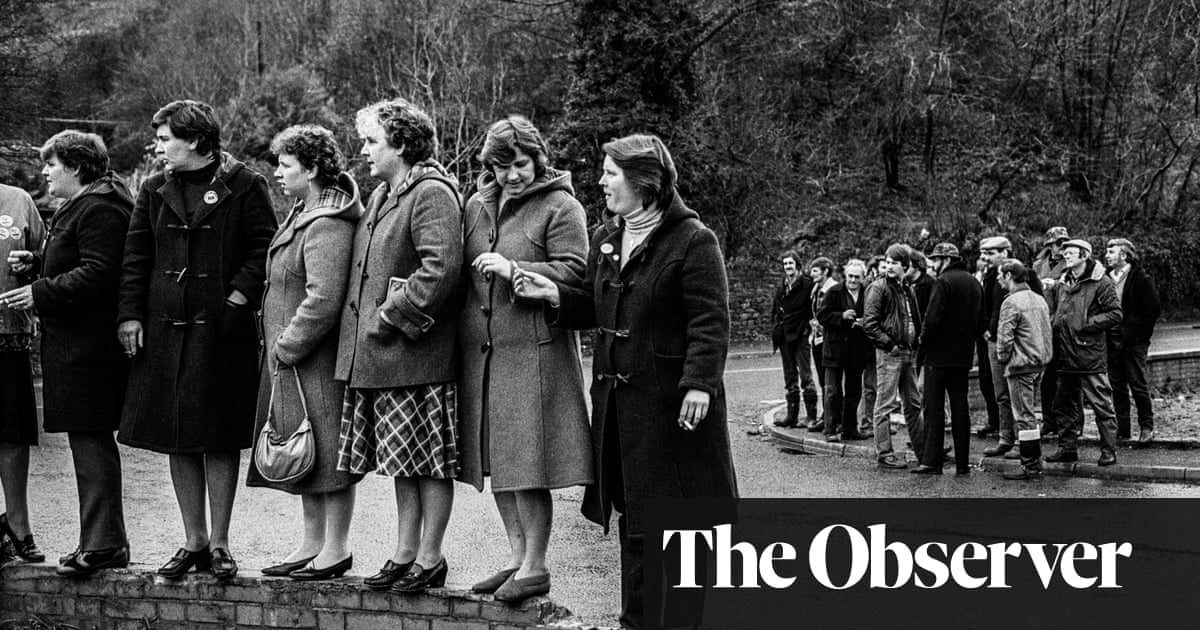
hereof one cannot speak, thereof one must be silent”: Wittgenstein’s famous proposition is sometimes quoted in relation to war survivors and their reluctance to talk about their experiences. The men and women who came through the second world war, building new lives for themselves in the ruins, were especially taciturn, none more so than Svenja O’Donnell’s German grandmother Inge, who’d been a 19-year-old with a baby when the advancing Red Army forced her to flee her home in Königsberg in January 1945. But for the promptings of her granddaughter, the dramas Inge was part of in the years either side of that escape might have remained a secret. But in her 80s she began to open up a little. What she revealed over the next 10 years, and Svenja supplemented with her own discoveries, has resulted in a fascinating book.
Inge was a small child when Hitler came to power and in her “carefully curated” memories of skating parties, ice-creams and pet monkeys the rise of nazism barely figured. Her parents were Lutherans, not Jews, and though they disapproved of Hitler they kept their heads down. Initially resistant when Inge pushed them to let her go to college in Berlin, they soon succumbed. In September 1940, with allied bombing raids yet to kick in, the only threat to a vivacious 15-year-old lay in the city’s decadent nightlife. And when Inge made friends with a girl called Gisela, whose mother Dorothea invited her to live with them, they’d every reason to think she would be safe.
So she might have been had she not fallen in love with Gisela’s 19-year-old brother, Wolfgang, a shy, intelligent boy who had avoided being called up for army service and who shared her love of swing and jazz. To the Nazi regime, the swing music of Benny Goodman and Louis Armstrong was dangerously subversive but Inge and Wolfgang weren’t alone in being devotees: to the 3 million Germans secretly listening to the BBC, the music it played was as important as its news broadcasts. Swing certainly contributed to the romance between Inge and Wolfgang. The night they heard a band play Duke Ellington’s “It Don’t Mean a Thing” was particularly intense, because Wolfgang had just received the telegram summoning him to war.
By the time Inge realised she was pregnant, he’d gone. But when she wrote to tell him, he promised to look after her and make things right. Consumed by guilt for failing in her duty of care, his mother Dorothea was equally set on them marrying. Inge’s parents, forgiving rather than angry, hoped the same. The fly in the ointment was Wolfgang’s father, Carl-Otto, Dorothea’s ex-husband, who flatly forbade it. Inge thought Wolfgang should have stood up to him; the sense of betrayal never left her.
The child she gave birth to, back home in Königsberg, was the author’s mother. A few years later she had a second daughter with a different father, her husband for the next 60 years. What happened to Wolfgang? At the outset, O’Donnell didn’t even know his name. She might have assumed he’d died on the eastern front, as so many other German soldiers did, but the story proved more complex. So did the story of Inge’s lucky but terrifying escape to Denmark, on a ship called the Göttingen, and the kindness shown to her by Dorothea, who stayed in touch, sent her 10,000 marks and came to depend on her for supplies of morphine. How Inge acquired the morphine, through a seemingly kind but unscrupulous grocer, and what ensued from that, is a story in itself, the darkest in the book.
O’Donnell fills out her grandmother’s narrative through diverse research: on the high incidence of wartime rape, with women as “collateral damage”; on Goebbels’s bizarre creation of a Nazi swing band, Charlie and His Orchestra; on Russia’s torpedoing of ships carrying German civilians; on child malnutrition and death in postwar Denmark. It’s surprising that Walter Kempowski’s monumental Swansong 1945 is missing from her bibliography and there are a few lacunae (how Inge got together with her husband for example). But her pursuit of the truth – which includes her visiting all the places associated with Inge – is impressively tenacious.
Here and there she reproaches herself for the pain that uncovering the truth caused to Inge and others in the family. But through it she came to understand a grandmother who’d always seemed cold and aloof. And the peace Inge found at the end of her life – she died aged 92 in 2017 – came about, in part, because the burden of secrecy had finally been lifted.
• Inge’s War: A Story of Family, Secrets and Survival under Hitler is published by Ebury (£16.99). To buy a copy go to guardianbookshop.com. Delivery charges may apply












